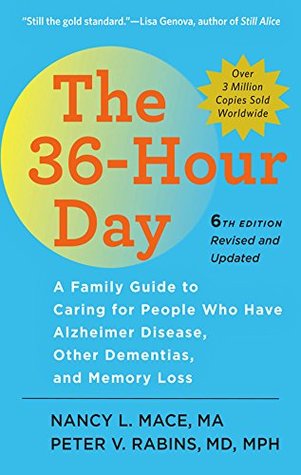More on this book
Community
Kindle Notes & Highlights
Read between
November 6 - November 19, 2020
Someone who has an illness that causes dementia may forget that a person she once knew has died. She may say, “My mother is coming for me,” or she may say that she has been visiting with her grandmother. Perhaps her memory of the person is stronger than her memory of the death. Perhaps in her mind the past has become the present. Instead of either contradicting her or playing along with her, try responding to her general feelings of loss, if you feel that this is what she is expressing.
Telling the person who has dementia outright that her mother has been dead for years may upset her terribly. Most of us want to tell “the truth,” and it is reasonable to see how the person reacts to the truth. Most of the time, unfortunately, the person who has dementia cannot remember this very important piece of information even after being told several times. Her focus on these memories probably means that they are important to her. Ask her to tell you about her mother, look through a photo album from those years, or retell some old family stories. This responds to her feelings without
...more
When a person who has dementia hides something, she often forgets where she put it and concludes that it has been stolen
Do everything you can to establish a friendly relationship with the staff. Before complaining to or about the staff, carefully consider whether it is necessary to complain this time.
Include the person in special family events such as birthdays and holidays when possible
What you talk about is not as important as being together
Help him care for himself. Remind him to smell the flowers and see the birds when you go outside together.
Placing a person who has dementia in long-term care may intensify your feelings of grief and loss
A person with a normally aging brain uses hints to retrieve information from memory. For a person who has dementia, hints do not help with recall.
To reduce the risk of heart attack, stroke, and dementia, the CDC recommends thirty minutes of physical exercise five days a week for everyone who can do so
Studies support the idea that following a Mediterranean diet delays the onset of dementia
Repeated concussions increase the risk of dementia
Never conclude that a person has dementia without having them evaluated by a physician
At the beginning of Alzheimer disease memory impairment is the problem most frequently noticed by the person with the disease and by their family
Treating a depression often helps the person who has dementia enjoy life and can reduce distressing behavioral symptoms
The term delirium describes a set of symptoms in which a changed level of concentration and alertness occurs in addition to difficulty thinking. Like the person who has dementia, the person who has delirium may be forgetful, disoriented, or unable to care for himself, but unlike a person who has dementia, the person with delirium is less alert and more drowsy, inattentive, and easily distracted than is usual for him. One important distinguishing feature between dementia and delirium is that delirium usually begins suddenly, while dementia usually develops gradually over months or years. Other
...more
Delirium has many causes and is usually reversible if the cause is found. Medication side effects, infection, and dehydration or fluid overload are common causes. Even a minor infection such as a urinary tract infection can cause delirium. When an older person is ill or hospitalized and becomes confused, the physician must address any possible cause of delirium before making a diagnosis of dementia.
A transient ischemic attack (TIA) is a temporary impairment of brain function that is due to an insufficient supply of blood to part of the brain. The person may be unable to speak or may have slurred speech. He may be weak or paralyzed, dizzy, or nauseated. These symptoms last only a few minutes or hours and totally resolve. This is in contrast to a stroke, in which symptoms are the same but in which the deficits persist for more than twelve hours. Very small deficits may not be noticeable.
TIAs should be regarded as warnings of stroke. Prompt medical attention is essential.
TIAs should be regarded as warnings of stroke and should be reported immediately to your doctor. Getting to an emergency room when the symptoms begin is crucial, since the use of “clot-busting” drugs w...
This highlight has been truncated due to consecutive passage length restrictions.
We have reached an exciting point in dementia research. Not long ago, most people assumed that dementia was the natural result of aging, and only a few pioneers were interested in studying it. In the past forty years, that situation has changed. It is now known that: Dementia is not the natural result of aging. Dementia is caused by specific, identifiable diseases. Different protein abnormalities are the causes of each of the neurodegenerative dementias. Diagnosis is important to identify treatable conditions and guide treatment. A proper evaluation is important in the management of diseases
...more
Rehabilitation therapy generally maximizes the amount of recovery that occurs after stroke, and recovery can continue for several years
The brain can make new cells, even in old age
We can change the quality of life for some people who have dementia by making changes that help them to function as well as possible, reducing their anxiety and fear, and helping them to enjoy things sometimes


